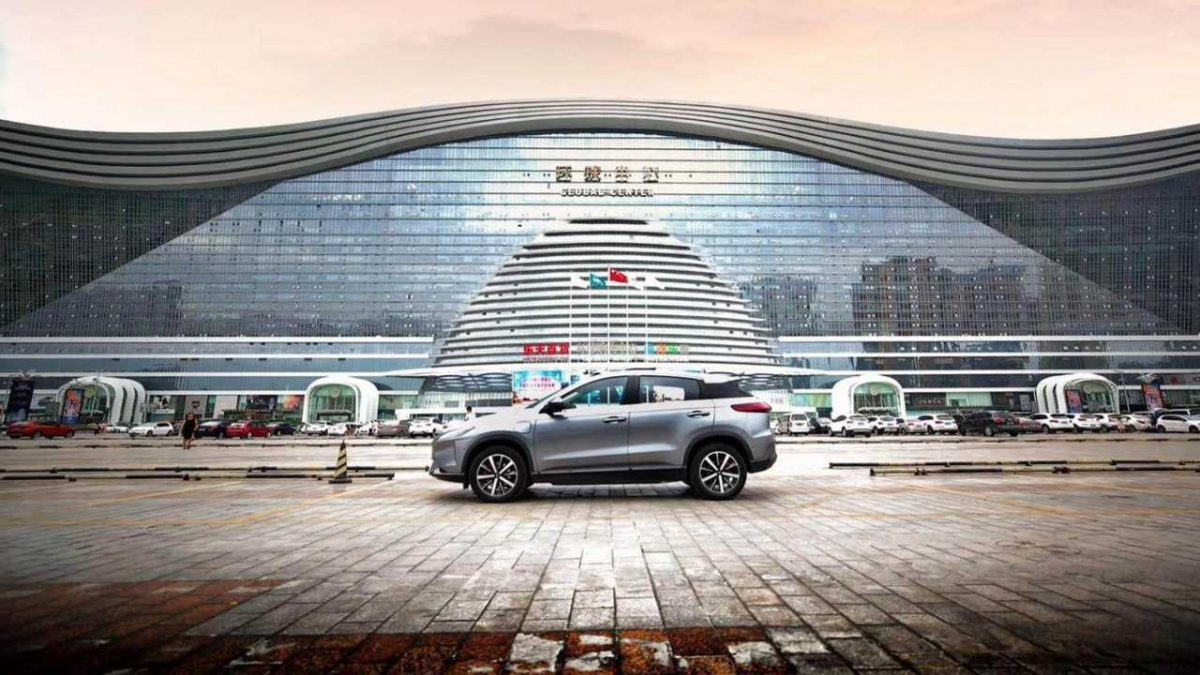Upstart Chinese electric vehicle maker, Xpeng Motors has officially filed for its initial public offering (IPO) on the New York Stock Exchange. The move wasn’t a surprise and had been anticipated for some time now.
The announcement makes XPeng the third electric vehicle manufacturer out of China to list its shares in the US. The timing of the announcement doesn’t seem to be ideal, as US-China relations continue to be strained. However, the two EV automakers from China that have already had IPOs in the US have done so successfully. NIO, in particular, has seen its stock climb considerably in 2020.

The Xpeng G3 2020 Edition
Xpeng recently completed its C+ round of investment, which saw $900 million injected into the company by investors including Qatar’s sovereign wealth fund, Alibaba Group Holding Ltd, Aspex, Coatue, Hillhouse Capital, and Sequoia Capital China.
Xpeng began deliveries of its second vehicle, the P7 long-range sports sedan, just last month. Their first vehicle, the G3 compact SUV has been on sale in China since December of 2018 and has sold just over 20,000 units to date. The Xpeng P7 is currently the longest-range EV made in China, beating the long-range Tesla Model 3 by 24 miles (38 km). The P7 has an NEDC range rating of 706 km which translates to 438 miles, and the long-range Tesla Model 3 is officially rated at 668 km (414 miles) by the Chinese Ministry of Industry and Information Technology (MIIT).
The P7’s price range is RMB 229,900 to 349,900 ($32,462 to $49,404 US) after the new-energy-vehicle subsidies are factored in. The G3’s price after subsidies ranges from RMB 143,800 to 180,800 ($20,124 to $25,302 US).
InsideEVs visited Xpeng’s Guangzhou headquarters last year to talk to the automaker and see their vehicles first-hand. I was able to go for a ride in their G3 SUV and was impressed with the fit and finish, as well as the advanced driver assist systems, especially since it’s reasonably priced.
The G3 is currently made at Haima Automotive’s Zhengzhou manufacturing facility under a joint operating agreement. That’s very common in China because it’s difficult for a startup to get its own manufacturing license. Xpeng secured its license and built a state of the art manufacturing facility in Zhaoqing, Guangdong Province, which just recently opened. The P7 is currently being made there.
Taken from the filing:
Our Strengths
We believe the following strengths position us well to capitalize on the opportunities of a rapidly changing passenger vehicle market and the anticipated consumer demand for Smart EVs in China:
- we are a leading Smart EV company;
- great to drive, great to be driven;
- deep software, hardware, and data technologies;
- innovative software and content subscription model;
- scalable and efficient platforms; and
- the winning team for Smart EV.
Our Strategies
We pursue the following strategies to accomplish our mission:
- continue to invest in and advance our technologies;
- leverage common platforms to launch a new model every year;
- build the leading Smart EV brand;
- expand our sales and supercharging network;
- drive operating efficiency by optimizing production management; and
- expand innovative subscription and value-added services.
Xpeng is particularly proud of its ADAS because they are one of the only automakers in the world that isn’t outsourcing its hardware and software for core semi-autonomous driving features. NIO, for instance, uses Mobileye systems. Li Auto has partnered with Bosch for its ASAD equipment. Like Tesla, Xpeng has elected to fully develop its system’s hardware and software in-house.
Xpeng explained that while building their ADAS systems entirely in-house is an enormous cash-drain, the long-term benefits are worth it. Since it’s their system, they own all the data and they don’t have to wait for their supplier to offer system updates. They can push out frequent OTA updates whenever they are ready, while competitors need to wait until their partners decide to upgrade the systems. It’s a long-term play that Xpeng believes will be the main differentiator between them and the other Chinese EV startups.

